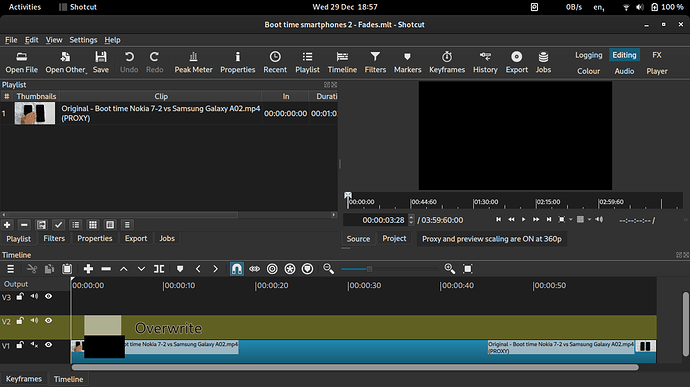Hello everyone 
I created a new topic because I could only find Windows crashes, not on Linux Debian. Feel free to tell me if this topic’s a duplicate.
What is your operating system?
Debian GNU/Linux bookworm/sid
That’s Debian 12 “unstable”. (despite the name, it is surprisingly stable and I never had major bugs with it)
What is your Shotcut version (see Help > About Shotcut)?
Shotcut version 21.12.22, installed from the official Debian GNU/Linux “deb” repository
Can you repeat the problem? If so, what are the steps?
Yesterday it crashed ~5 times randomly but it was OK after reopening, today it crashes every time I try to add a transparent clip into my project.
- I open an existing project with 3 video tracks.
- File > Open other > Generator > Colour > transparent > OK
- A preview of the generated clip appears.
- I can drag this preview but I soon as I release it Shotcut crashes. If I move the playhead to any position in the timeline Shotcut crashes too.
Just before releasing the mouse:
Considerations
- I have been using Flathub’s version of Shotcut before and rarely got problems.
- Since I uninstalled and installed Debian’s official version, Shotcut doesn’t detect any hardware encoder whereas it was detecting QSV before.
- I have a dual boot on Windows and Shotcut does detect QSV there.
Are crashes happening because I tampered with different Shotcut versions?
Am I missing a dependency?
I would greatly appreciate your help on this issue 
I can uninstall + reinstall Shotcut if needed.
Thanks, wishing you happy holidays 




